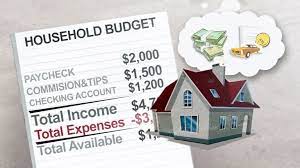**Title: How Bonds Influence Mortgage Rates: A Comprehensive Guide**
**Introduction**
Understanding the factors that influence mortgage rates can help you make informed decisions when securing a home loan. While personal factors like your down payment, credit score, and loan type play a significant role, there are also broader market influences at play. One such factor is the bond market. This article will explore how bond rates affect mortgage rates and which types of mortgage rates are influenced by the bond market.
**The Relationship Between Bonds and Mortgage Rates**
Bond prices and mortgage interest rates have an inverse relationship. When bond prices are high, mortgage rates tend to be lower, and when bond prices are low, mortgage rates are higher. This might seem counterintuitive at first, but it makes sense when you consider the supply and demand dynamics of the secondary bond market.
**How Does a Bond Loan Work?**
Bonds are long-term, low-risk investment products. While corporations can issue private bonds, Treasury bonds issued by the federal government are more well-known. When you buy a bond, you lend money to the government, which then pays you interest. This interest comes in two forms: fixed interest and inflation interest.
The fixed interest on a savings bond is similar to the fixed interest on a mortgage loan. The U.S. Treasury announces a fixed rate for new bonds every May 1 and November 1. For example, bonds issued between November 1, 2023, and April 30, 2024, have a rate of 5.27%.
**How Do Bonds Affect Mortgage Rates?**
The link between mortgages and bonds stems from competition for investments. Both bonds and mortgage-backed securities attract similar types of investors looking for stable returns with some degree of safety. Generally, as bond loan interest rates move, so do mortgage rates, albeit at a slightly higher level to reflect the added risk in mortgage lending.
For instance, bonds issued from May 2023 to October 2023 had a rate of 4.86%, while those from November 2023 to April 2024 had a rate of 5.27%. Correspondingly, mortgage rates also increased, with a 30-year fixed-rate mortgage rising from 7.17% in May 2023 to 7.22% in November 2023.
**Impact of Increased Bond Rates**
To illustrate, let’s say you buy a Treasury bond for $1,000 with a 2% annual fixed interest rate. If interest rates rise to 3% a year later, your bond’s value will decrease because new bonds offer higher returns. You might only be able to sell your bond for $900, even though it will still mature at $1,000.
**Impact of Lowered Bond Rates**
Conversely, if the Treasury lowers bond rates to 1%, your bond with a 2% interest rate becomes more valuable. Investors might be willing to pay $1,100 for your bond, knowing it offers a better return than new bonds. This increased demand raises your bond’s current value.
**The Ripple Effect of Bonds on Mortgage Rates**
These shifts in bond prices and interest rates ripple through to mortgage rates. Mortgage lenders set their rates slightly above bond yields to attract risk-averse real estate investors while offering them a safeguard through property collateral. When bond rates go up due to dropping prices, mortgage rates generally increase to match the trend. Conversely, strong bond markets with high prices and low yields lead to reduced mortgage rates.
**Which Bonds Affect Mortgage Rates?**
Not all mortgage types are influenced by Treasury bond rates. Bond prices primarily affect fixed-rate mortgages. Adjustable-rate mortgages (ARMs) are more influenced by the Federal Reserve’s interest rate decisions. If the Fed cuts interest rates, ARM rates typically decrease, and if federal rates go up, ARM rates increase.
**Choosing the Right Mortgage Lender**
While you can’t control the bond market, you can choose the right mortgage lender. Compare different lenders and explore all your interest rate options before making a decision. A lender with a solid reputation and affordable rates can significantly impact your mortgage experience.
**Conclusion: Understanding the Bond-Mortgage Rate Relationship**
Bond prices have an inverse relationship with mortgage interest rates. As bond prices rise, mortgage rates fall, and vice versa. This is because mortgage lenders tie their interest rates closely to Treasury bond rates. While bond prices only affect fixed-rate mortgage loans, Federal Reserve decisions impact ARM loans. Ultimately, your choice of lender is crucial in securing the best mortgage loan.
Explore your mortgage options and begin the approval process today with O1ne Mortgage Inc. Visit [O1ne Mortgage Inc.](https://o1nemortgage.com) to request a mortgage quote, apply for a loan, or speak with a representative. You can also call us at 888-372-8820.
**Keywords:** mortgage rates, bond market, fixed-rate mortgage, adjustable-rate mortgage, Treasury bonds, mortgage lender, O1ne Mortgage Inc., interest rates, mortgage-backed securities, Federal Reserve.
Loan Servicing
1. Mortgage Relief 2. Refinance Options 3. HUD Housing Support 4. Loan Modification 5. Short Sale







